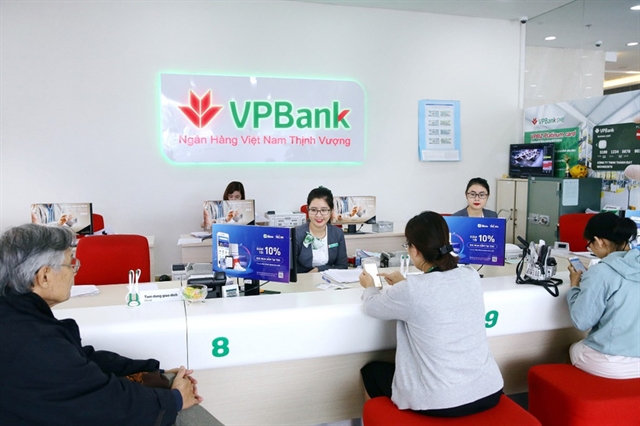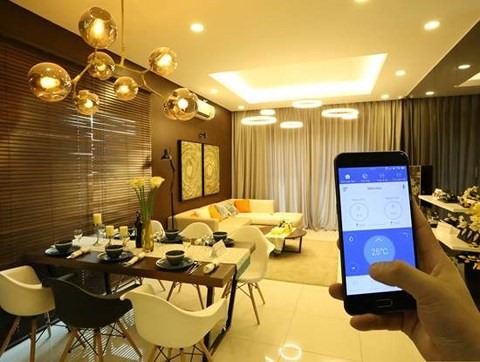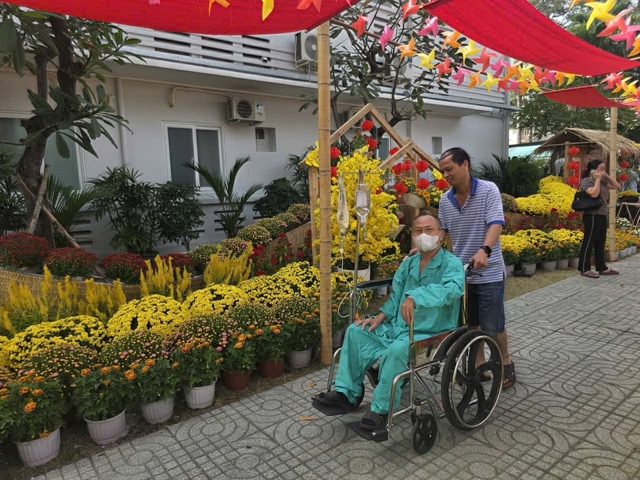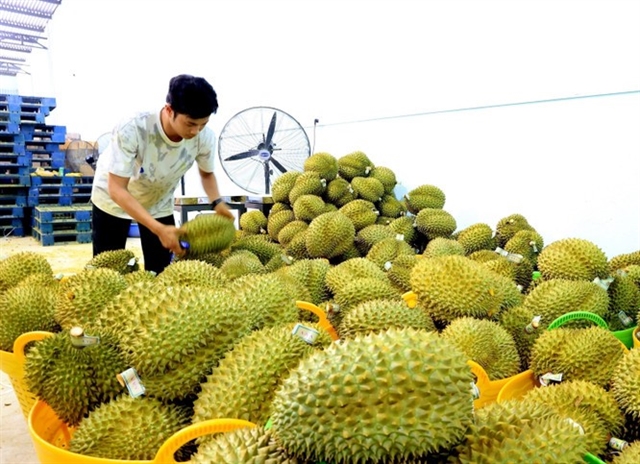 Economy
Economy

Property developers are racing to increase added value for their projects to attract buyers as competition becomes increasingly harsh.
 |
| Applying smarthome technologies in property development has become a popular trend in Việt Nam. - Photo infonet.vn |
HÀ NỘI — Property developers are racing to increase added value for their projects to attract buyers as competition becomes increasingly harsh. According to Nguyễn Đỗ Dũng, managing director at Singapore-based urban solution consulting company EnCity, this competition is shaping new trends in the real estate market.
Việt Nam still has multi-billion dollar urban area projects left deserted, a demonstration of the inefficient use of land resources and investments in the country, according to Dũng.
Dũng said urban development posed significant challenges to Việt Nam and urban planning also played a very important role.
Dũng said the four areas most important to urban development were building a good living environment, good connectivity with the city centre, diversified services and a good operating model. He said these key factors could push up the value of new projects.
"A successful urban area needs to be in a good location with transportation connectivity and regional linkage, an appealing living environment for the community with adequate facilities and green space, diversified products from luxurious to affordable homes to meet demand, adequate services, environmental protection measures and good services," he said.
“Still, the most important thing is to provide good services for residents,” Dũng said, adding that developing a property project involves building a community, not just building houses.
According to Yoon Young Kim, Schneider Electric’s country president for Việt Nam, Cambodia and Myanmar, technology was also shaping a new trend in property development as smarthomes increase in popularity.
He said he expected the smarthome market to reach nearly US$53.45 billion globally by 2022.
In Việt Nam, the internet and smarthome technologies have changed the market over the last decade. Kim believes the property market will see a rapid increase in the number of smarthomes within the next few years.
Rapid urbanisation had also necessitated the optimisation of energy consumption, making green development an emerging trend, he said.
“Always go with technology if you want to take the lead,” said Kim.
Stephen Wyatt, general director of Jones Lang LaSalle Việt Nam, said developers would focus more on market demand, meaning the market should see an increase in the supply of affordable homes.
Micro-apartment units were becoming more and more popular, he added.
Wyatt pointed out that e-commerce would have considerable impacts on the real estate market in the coming years.
The retail property market would face a number of challenges in the era of e-commerce, he said.
Tourism property in Việt Nam should also develop significantly as the country strives to boost the tourism industry, Wyatt said.
Lê Hoàng Châu, president of the HCM City Real Estate Association, said location was likely to remain the decisive factor in the added value of property projects over the next several decades.
The second factor was the development of green and environmentally friendly buildings – which help save energy and resources – and smart homes, Châu said, adding that service quality comes next.
According to Hàn Mạnh Tiến, president of the Việt Nam Association of Corporate Directors, the market was witnessing significant efforts by developers to introduce new products with diversified facilities and high-quality services, as well as the formation of multi-functional urban complexes and the application of advanced technologies in property development.
Tiến said the pressure from rapid urbanisation also required property developers to be more creative in adding value to property products to meet the increasing demand of buyers and urban management requirements. — VNS




